In the comfort of our homes, many of us overlook household chemicals that might threaten our feline companions.
Despite their sharp instincts, cats can't always sense and steer clear of these hazards.
All too often, veterinarians meet distraught cat owners who wrongly assume their cats would naturally avoid dangerous substances.
A cleaning agent that works safely around your dog might harm your cat's tender skin.
This article provides essential tips and advice to safeguard your cats and avoid those emergency trips to the vet.
Protecting Your Feline from Household Chemicals
Ensuring the safety of our beloved feline companions involves more than just providing them with food, love, and shelter.
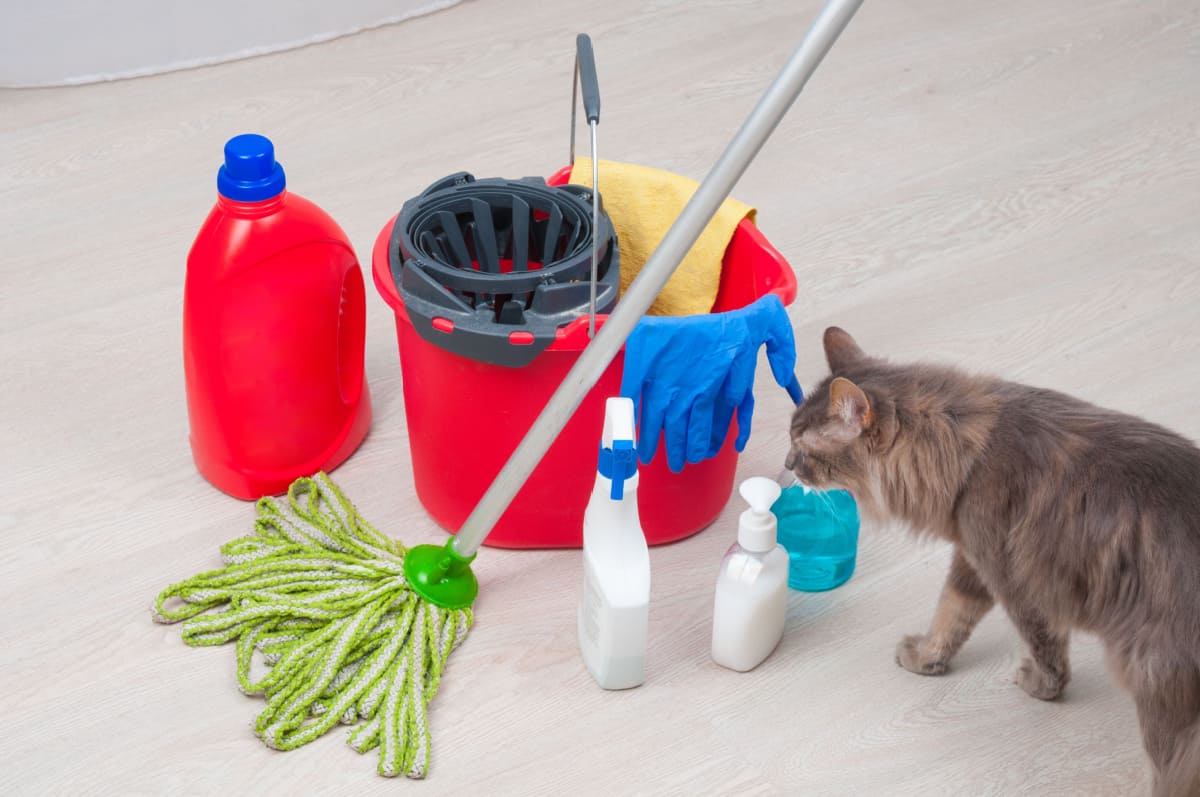
The very environment they live in, filled with household products, can pose unforeseen dangers.
Being aware of potential hazards and taking proactive steps can be the difference between a safe haven and a risky living space for your cat.
Here are some tips to keep your cats safe and out of a vet’s office on an emergency basis:
1. Consultation with Experts
Before using any cleaners, especially disinfectants, it's essential to consult your veterinarian or the ASPCA/Animal Poison Control Center.
Professionals know which products are safe for cats and can guide you on potential risks associated with specific household chemicals.
2. Opt for Non-toxic Cleaners
When selecting cleaning agents, it's wise to choose non-toxic or citrus-based cleaners over more hazardous alternatives.
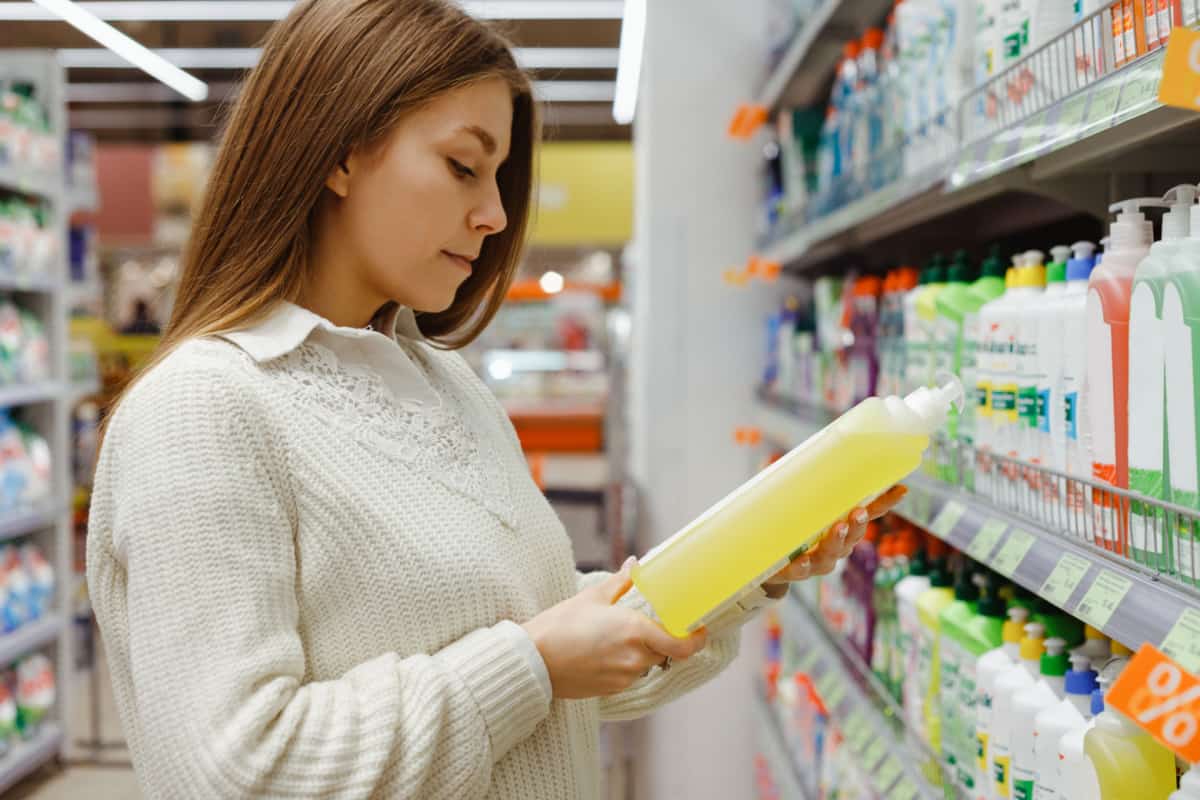
While many cleaners may appear safe, cats have sensitive skin. Even products labeled as "nontoxic" don't always guarantee safety, so being informed and cautious is essential.
3. Follow Instructions Religiously
Adhering to label instructions is crucial when using any product. Manufacturers provide guidelines to ensure the product's effective and safe use.
Overusing or misusing can increase its potential harm, especially to smaller creatures like cats.
4. Avoid Over-concentration
Stronger doesn't always mean better. Resist the temptation to increase the concentration of a cleaning product, thinking it will be more effective.
Over-concentration can heighten the risk to your pets, even if it appears to clean better.
5. Exercise Caution with Pine Cleaners
Pine-scented or pine oil-based cleaners can pose risks to cats.
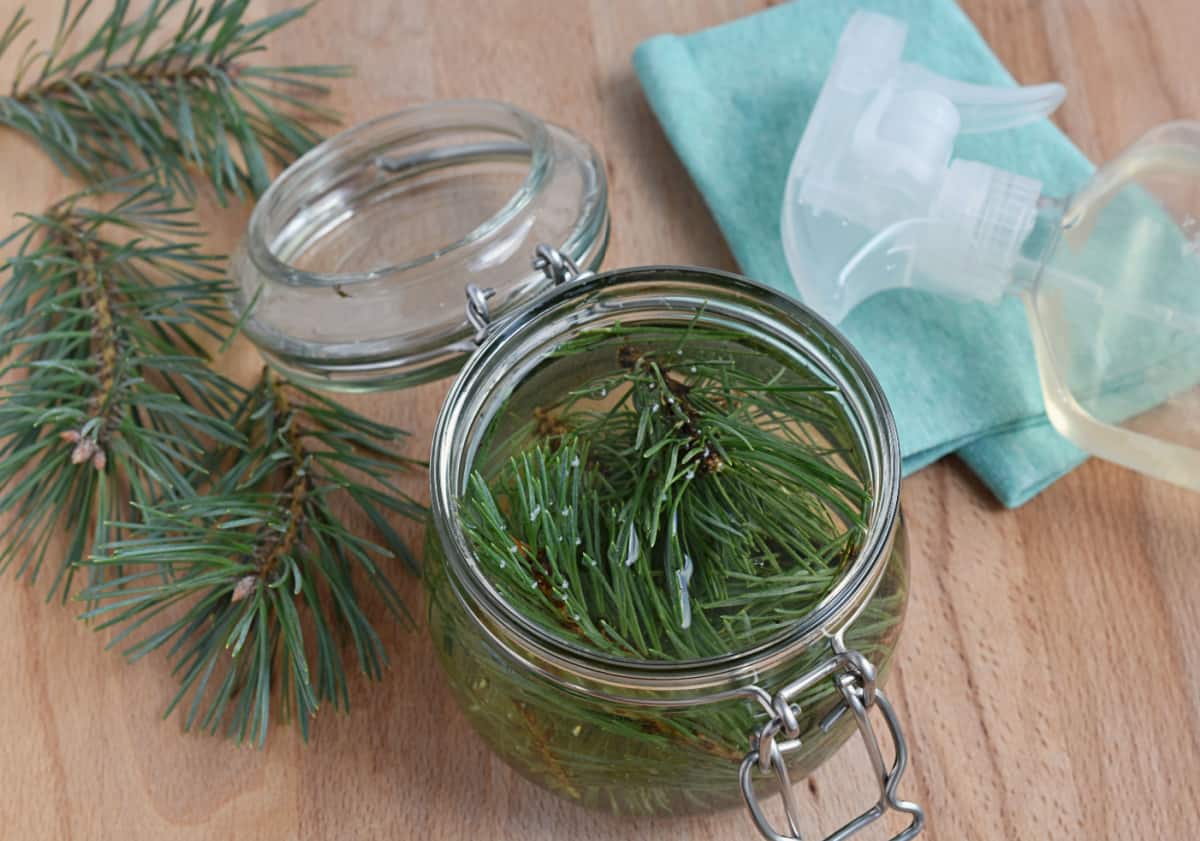
If you opt to use them, ensure your cat remains in another room until the cleaned area is thoroughly rinsed and dried.
The residue from these cleaners can be especially harmful if ingested or if it comes into contact with the cat's skin.
SIGN UP FOR THECATSITE'S EMAIL UPDATES >
6. Beware of Wet Surfaces
After cleaning carpets or applying pesticides, keeping your cat away from wet surfaces is vital.
These surfaces might contain chemical residues, which cats can absorb through their paws. Once they groom themselves, they risk ingesting these harmful substances.
Pesticide Risks in the Household
Pesticides, while effective against pests, can pose hidden threats to our feline companions.
Cats' natural curiosity, combined with their grooming habits, heightens their vulnerability.
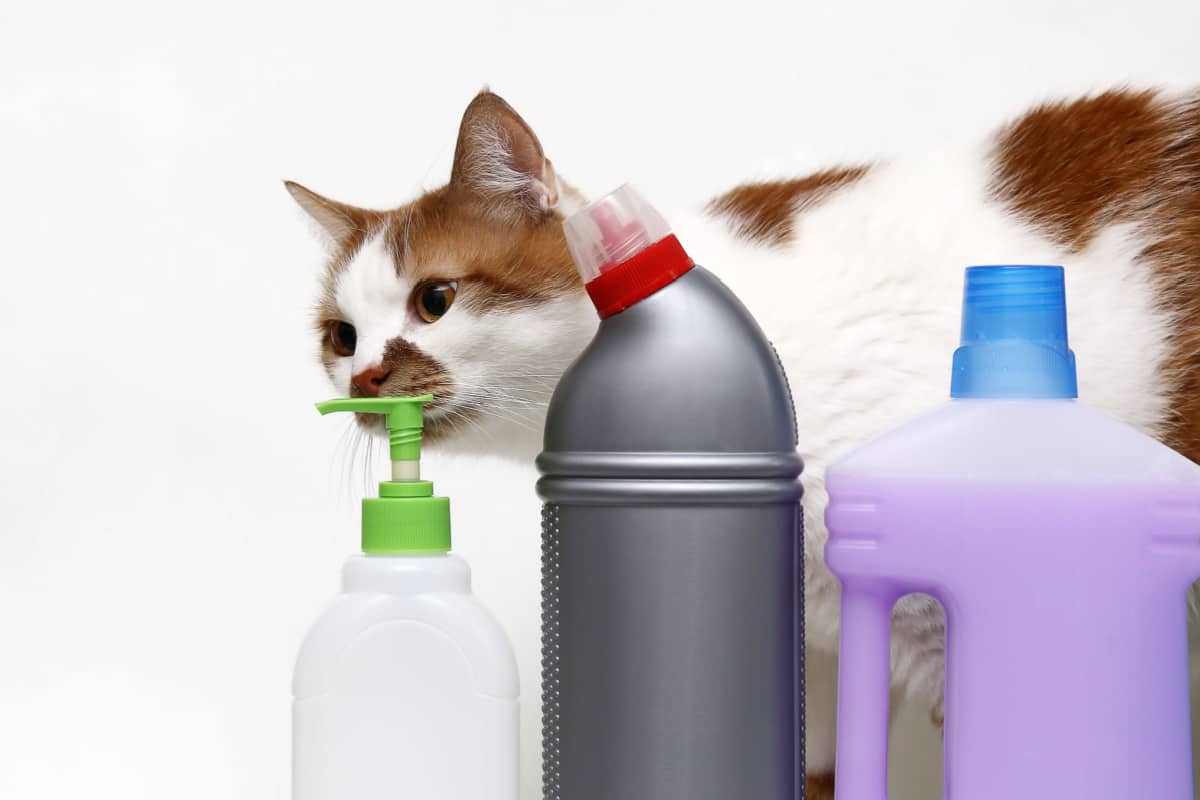
It's crucial for cat owners not only to choose safe products but to understand their potential impacts. Here's what to keep in mind:
- Even a flea treatment can cause problems.
- It’s not uncommon for a well-meaning cat owner to poison his own cat by treating his cat with a canine flea treatment.
- Just because it is approved for dogs doesn’t mean it’s safe to use on cats.
- Check the label before putting any insecticide on your kitty. If the label doesn’t say it's used “for cats,” don’t use it.
- If the dog and cat are chummy, go a step further and use a cat-safe product on Fido, too.
- Flea collars, even those formulated for cats, can be lethal.
- Sometimes while scratching or trying to remove it, the cat can catch the collar in its mouth.
Dr. Patricia Hague, owner of the Cat Hospital of Las Colinas in Irving, Texas, treated a kitten that died of liver damage caused by the chemical absorbed through its skin from his collar.
Effective and Safe Pest Control Measures
In our quest to maintain a pest-free home, it's easy to overlook the implications of the methods and household chemicals we employ.
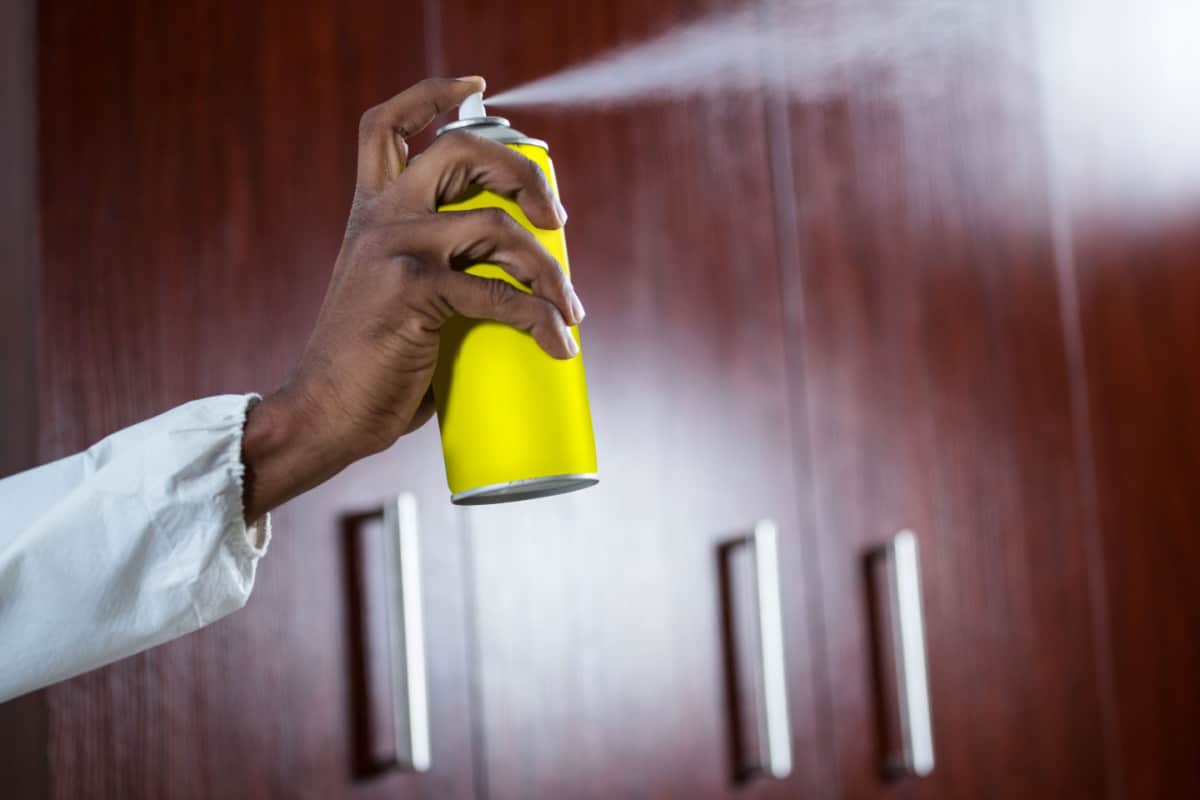
While the immediate goal is to rid our homes of unwanted intruders, the well-being of our feline companions should remain paramount.
Both the chemicals used to counter pests and common household chemicals can inadvertently pose significant risks to cats.
By adopting informed and cautious approaches, we can strike a balance between a pest-free home and a safe environment for our cats. Here are some essential measures to consider:
1. Seal Entry Points
Plug up any holes where pests can sneak into the home.
By preventing pests from entering, you reduce the need for chemical interventions, creating a safer environment for your cat by keeping both pests and the chemicals used to combat them at bay.
2. Remove Food Sources
Ensure all food is stored securely and leftovers are cleaned up.
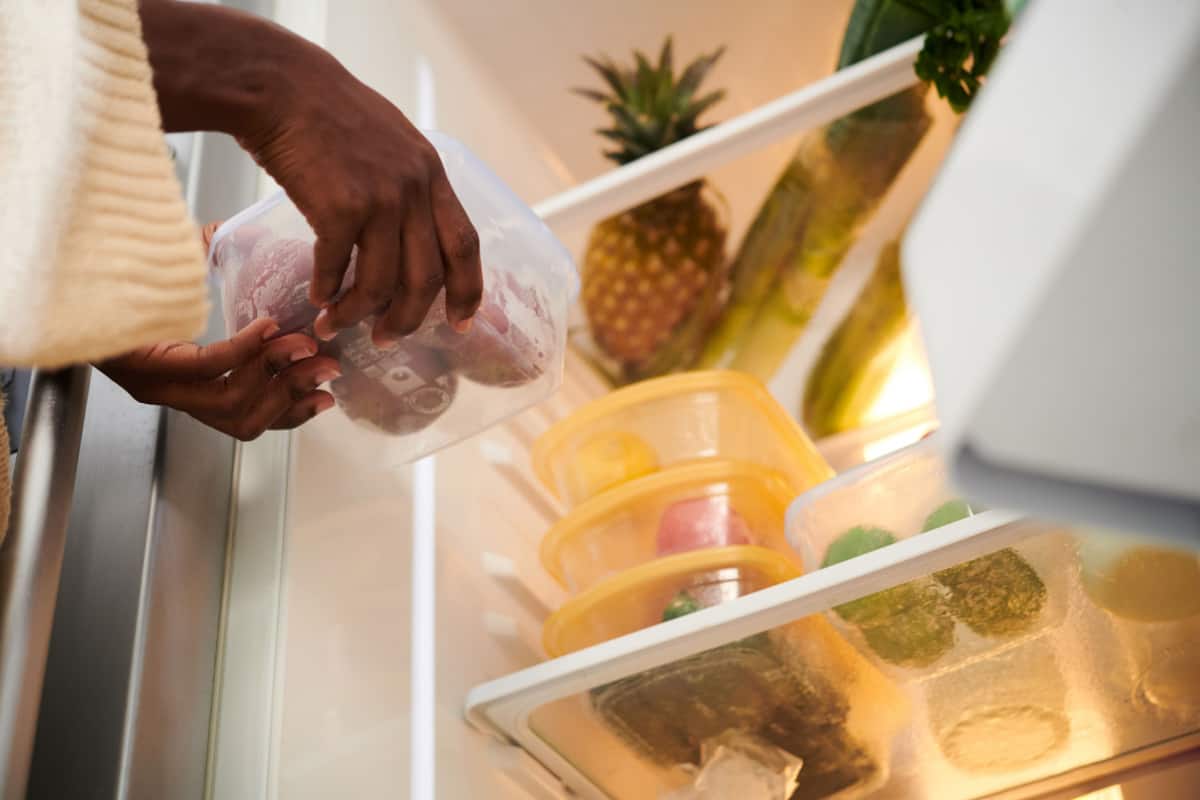
Pests are often attracted to food sources, and by eliminating their access, you can naturally reduce their presence without resorting to chemicals.
3. Store Chemicals Safely
Keep all chemicals, powders, traps, and baits out of your cat's reach.
Given the innate curiosity of cats, securely storing potentially harmful substances is crucial to prevent accidental ingestion or exposure.
4. Understand Direct and Indirect Exposures
Cats can become exposed to pesticides directly by licking off their paws or indirectly by consuming an affected rodent.
Recognizing all potential exposure routes helps adopt the safest pest control methods.
5. Explore Non-toxic Alternatives
Opt for methods such as glue traps or rodent live traps.
Click here to see this box of glue traps on Amazon.
Many effective pest control methods don't involve harmful chemicals, offering a safer alternative for your feline companions.
6. Educate Yourself
When hiring exterminators, please inquire about their chemicals and request information sheets.
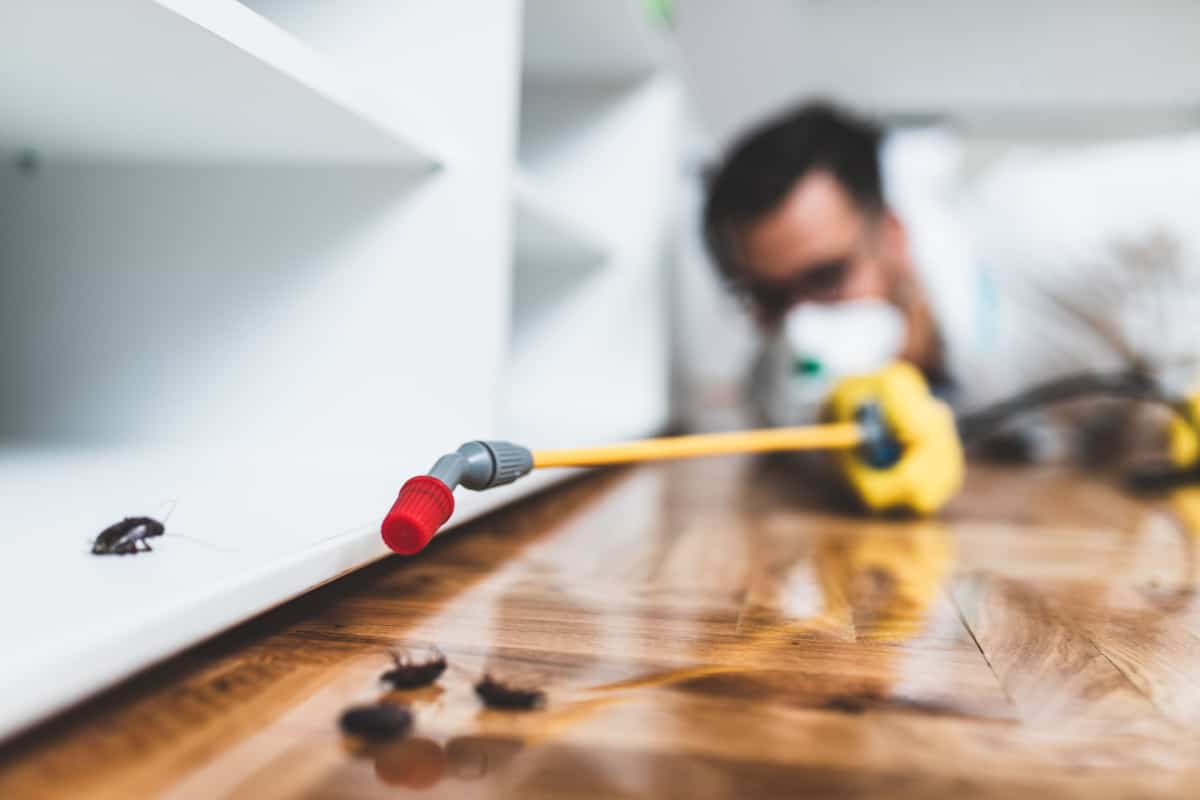
Being well-informed about the substances used in your home empowers you to ensure your cat's safety.
7. Choose Safer Poisons
When absolutely necessary, opt for anticoagulant poisons.
These have a known antidote in the form of vitamin K, making them a slightly safer choice in the event of accidental exposure.
8. Beware of Bug Bombs
Refrain from using bug bombs when pets are inside the house.
The vast amount of pesticide these devices release can easily reach your cat, mainly when air circulates through heating or cooling systems.
9. Seek Safe Shelter During Treatments
Consider relocating your cat to a friend's house, the vet, or safely outside in a carrier during any pest treatment.
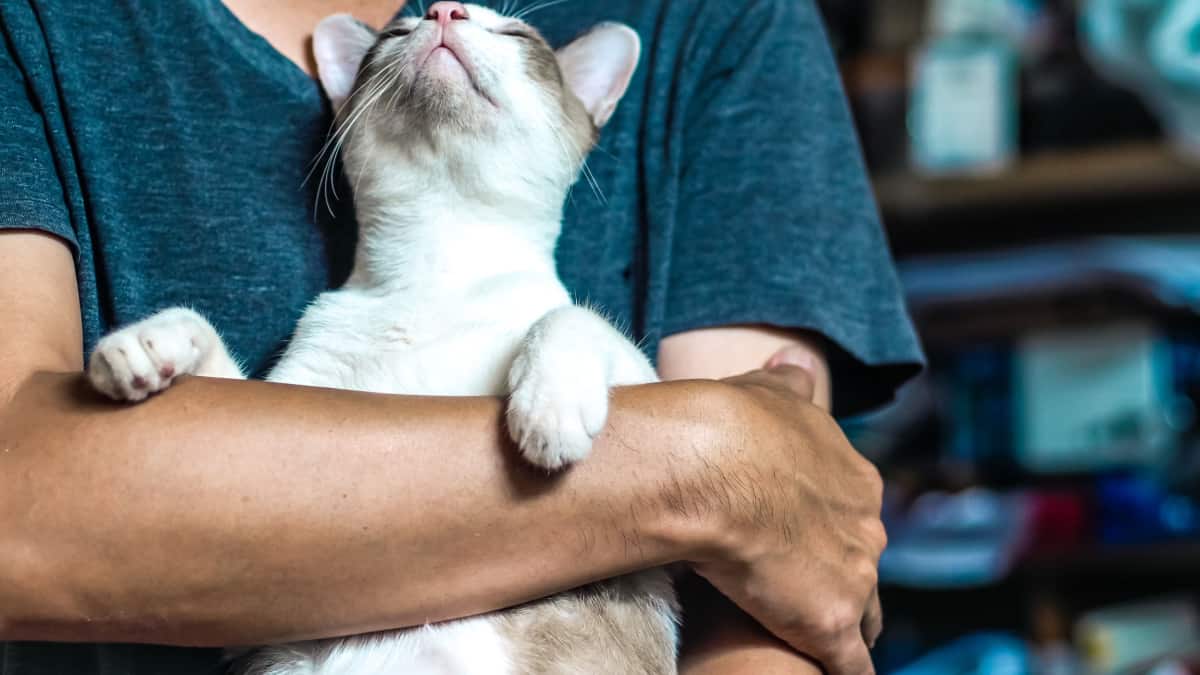
This ensures they remain unexposed to potentially harmful chemicals during the process.
For more information on potential hazards, visit www.aspca.org.
Prioritizing Feline Safety in a Chemical World
In navigating the maze of household chemicals and pesticides, our primary lesson is the importance of proactive care for our feline friends.
Despite their agility and independence, cats rely on us to create a safe environment.
We ensure their safety amidst potential hazards by staying informed, consulting experts, and making deliberate choices.
Remember, a safe cat is a happy cat. Let's continue to learn, adapt, and prioritize their well-being in every decision we make.
SIGN UP FOR THECATSITE'S EMAIL UPDATES >
Comments? Leave them using the form below. Questions? Please use the cat forums for those!
For more cat safety tips, check out the articles below.
Cat Safety Tips For Your Home & Garden [By Room]
When Can A Kitten Safely Explore The House?
Note: We may get commissions for purchases made through links on this page.

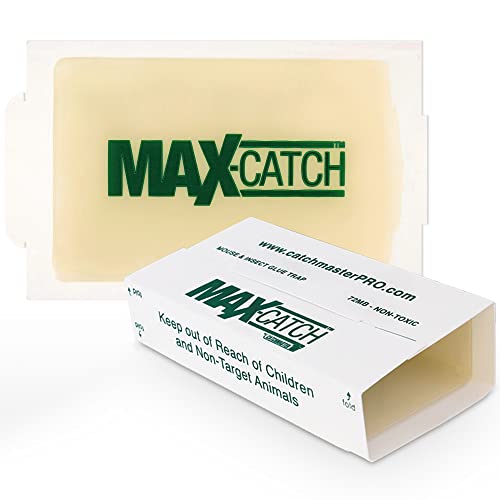
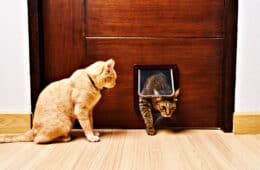
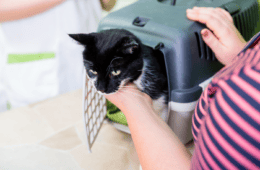

2 comments on “Household Chemicals And Your Cats: What Every Cat Owner Needs To Know”